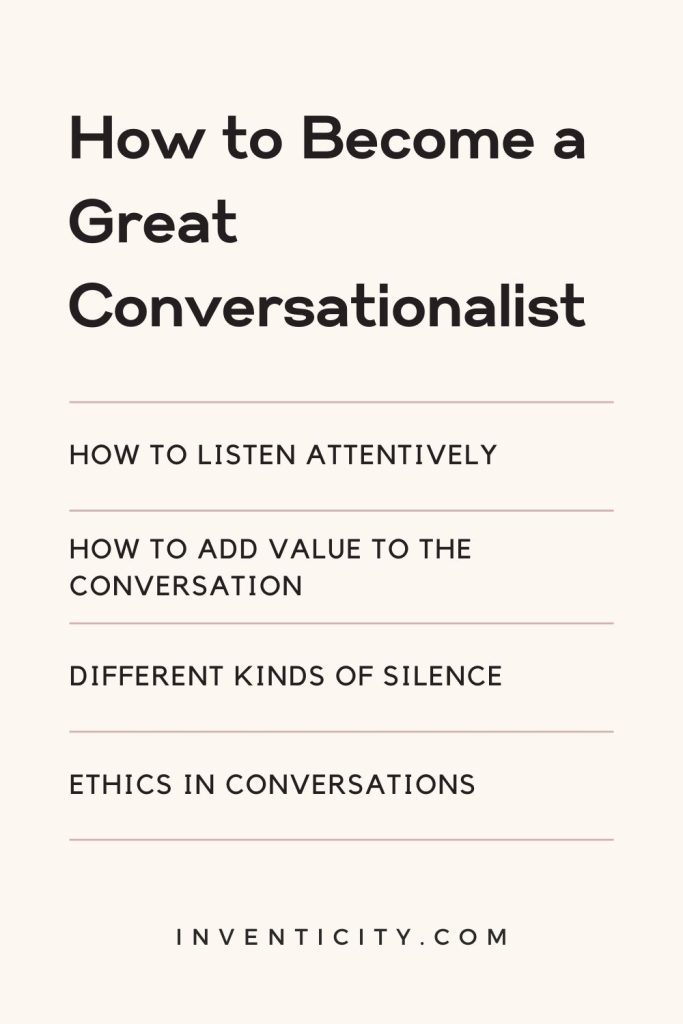To be a great conversation leader, you must be sincerely interested in what the persons in the conversation are saying. You must find genuine joy in all the subtleties of the conversation. A great conversation makes us feel uplifted, focused, awake, and alive.
How to Become a Great Conversation Leader & Conversationalist
How to be a great conversation leader. Conversations at work and in our spare time are tremendously important for us. Of course. For so many reasons, just for the joy of it, but also: It’s in conversations we test our new ideas and with the help of other people, we can easily and with less effort test the strengths and weaknesses in our new ideas and our analyses.
Explore Ideas
To explore and scrutinize our ideas in conversations, is an effective way to test our ideas much faster than if we had to go through and analyze them ourselves. Because other people have other perspectives they easily can bring into the conversation. If you are a good conversation leader you can be helpful to the people in the conversation and you can get a lot out of the conversation yourself. So how to be a good conversation leader? Well, you must, of course, listen carefully to what the persons in the conversation are saying and you must give everyone space to contribute. And you must also reply in a way that builds on or lifts and enriches what they have said, or puts what they have said into new perspectives.
Clarify
When something in the conversation is unclear to you – I suggest that you very thoughtfully and kindly respond to what they’re saying to cheque if you have understood what they intended to say. To be a great conversation leader, you must be sincerely interested in what the persons in the conversation are saying. You must find genuine joy in all the subtleties of the conversation. A great conversation makes us feel uplifted, focused, awake, and alive.
The Rest is Silence
You must give everyone space to explain what they want to bring to the conversation, and you must give the people space to reply to each other’s questions and contributions. And when you give space, you must not be afraid of silence. It’s important that you give the participants time to think, and it’s a good idea that you say something like: Now we will take a few minutes to think this through, so let’s have a few minutes, let’s say three or four or 5 minutes of silence to think this through. And we will start talking again after this time has passed. That’s a good way of using silence. Smaller pauses of silence are also good.
Ethics in Conversations
But there is something of importance in this! Silence can be used in an unethical way. In conversations, if participants feel that the silence is uncomfortable, maybe they will start talking too much and give away too much and they will say things they will regret after the conversation. So as a conversation leader it’s important that you are very attentive to what kind of silence there is in the conversation, and it’s also important that you are very attentive so that you lead the conversation in a way that is fruitful for all the participants.
Pay Close Attention
If you are taking part in an important conversation it’s crucial to pay close attention to how your interactions with the participants are forming the development of the conversation. To be a good conversation leader you must be very attentive. You must listen carefully and with kind uplifting intentions to all participants. It’s not difficult to be a great conversation leader. Just remember to be ethical and to be sincerely interested, pay attention, and give everybody space to test how their ideas can fly.
© Cecilia Elise Wallin
Watch the video How to Be a Great Conversation Leader & Conversationalist: https://youtu.be/meeC5fu_juA
